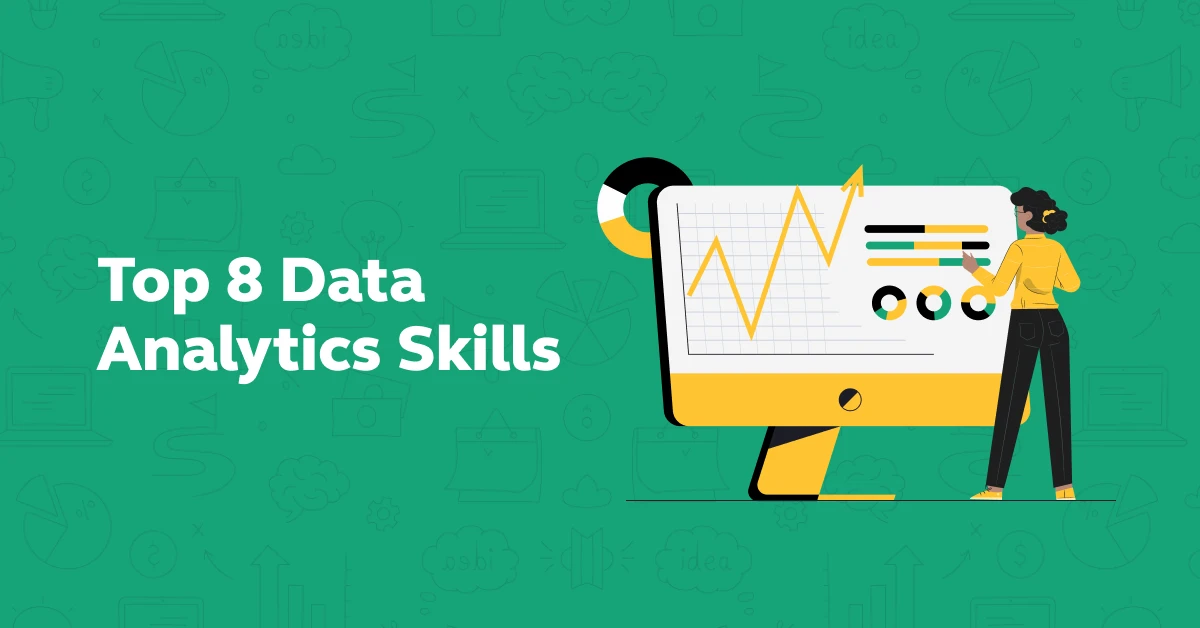
Top 8 Data Analytics Skills: A Comprehensive Guide to Thrive in the Industry
Dec 27, 2024 4 Min Read 7811 Views
(Last Updated)
Data analysts and data scientists are in high demand in today’s digital landscape. The field of data analytics has witnessed exponential growth, with employment projected to increase by 31% from 2019 to 2029, according to the U.S. Bureau of Labor Statistics.
In this comprehensive guide, we will explore the essential data analytics skills that can help you thrive in this booming industry.
Table of contents
- Understanding the Role of a Data Analyst
- "Technical" Data Analytics Skills
- Programming Languages
- Data Visualization Tools
- Statistical Analysis
- Data Wrangling and Cleaning
- Soft Skills for Data Analysts
- Communication Skills
- Attention to Detail
- Advanced Data Analyst Skills
- Machine Learning
- Big Data Technologies
- Takeaways...
- Is analytics in high demand?
- Will AI replace data analysts?
- Can ChatGPT analyze data?
- Is Tableau easier than SQL?
Understanding the Role of a Data Analyst
Data analysts play a crucial role in bridging the gap between raw data and actionable insights. They are responsible for gathering, processing, and analyzing data to support informed decision-making within organizations.

Collaboration with different departments, such as marketing and finance, is common to understand business objectives and translate them into data-driven solutions.
The data analysis process involves several stages, starting with data collection and ending with actionable insights. Each step, including determining the outcome, data collection, cleaning, analysis, visualization, and interpretation, is crucial for deriving accurate and meaningful outcomes.
Also Read: Data Science vs Data Analytics | Best Career Choice in 2025
“Technical” Data Analytics Skills
To excel as a data analyst, you need a strong foundation in various technical skills. These skills enable you to manipulate data, conduct complex analyses, and generate valuable insights. Let’s dive into the essential technical skills for data analysts:
1. Programming Languages
Proficiency in programming languages is indispensable for data analytics. Python, R, and SQL are three programming languages widely used in this field.
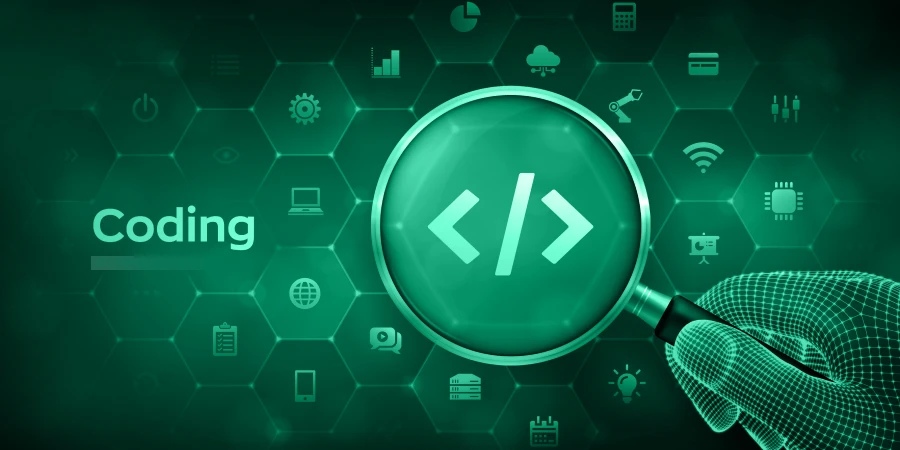
- Python: Python is highly versatile and commonly used for data manipulation and analysis. It offers a rich ecosystem of libraries like Pandas and NumPy, making it a popular choice among data analysts. Making Python one of the most essential data analytics skills.
- R: R is specialized for statistical analysis and is widely used in academic research and data visualization. It provides a comprehensive collection of statistical and graphical methods.
- SQL: SQL is the go-to language for database management. It allows you to query, update, and manipulate structured data. Proficiency in SQL is essential for working with databases effectively.
Read More: The Easiest Programming Languages to Learn in 2025
2. Data Visualization Tools
Data visualization is crucial for presenting insights in a meaningful and digestible manner. Tableau and Power BI are popular tools for creating visually appealing and interactive data visualizations.
- Tableau: Known for its user-friendly interface, Tableau enables you to create complex visualizations without any coding. It is particularly useful for creating interactive dashboards that can be easily shared across an organization.

- Power BI: Developed by Microsoft, Power BI is a powerful tool for creating interactive reports and intuitive dashboards. It seamlessly integrates with various Microsoft products and allows for real-time data tracking, making it popular in corporate settings.
Find More About Power BI Developer in 2025: Here’s What You Don’t Know
3. Statistical Analysis
Statistical analysis forms the backbone of data analytics, providing methodologies for making inferences from data. It encompasses descriptive statistics, inferential statistics, and hypothesis testing.
- Descriptive statistics: Descriptive statistics summarize and interpret data to provide a clear overview of the data’s characteristics. It includes measures like mean, median, and standard deviation.
- Inferential statistics: Inferential statistics enables you to make predictions and inferences about a population based on a sample. It helps generalize findings beyond the observed data.
- Hypothesis testing: Hypothesis testing allows you to evaluate theories or hypotheses with a view to solving practical problems. It helps determine the statistical significance of relationships or differences in data.
Read More: Top Statistical Programming Languages of 2025
4. Data Wrangling and Cleaning
Before any data analysis can occur, the data must be cleaned and transformed into a usable format. Data wrangling involves data cleaning, data transformation, and data integration.
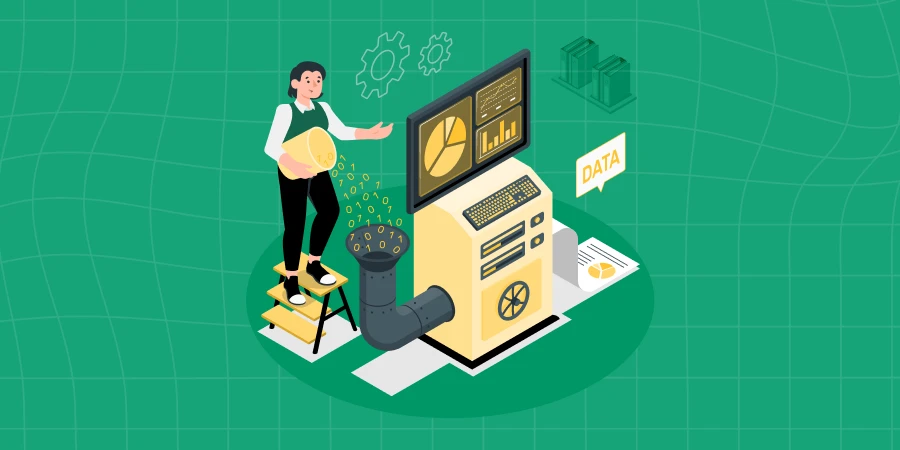
- Data cleaning: Data cleaning involves identifying and correcting errors, inconsistencies, and inaccuracies in datasets. It ensures that the data you work with is accurate and reliable.
- Data transformation: Data transformation involves converting data into a format that can be easily analyzed. This may involve aggregating, reshaping, or enriching the data to derive meaningful insights.
- Data integration: Data integration involves combining data from different sources to provide a unified view. It ensures that data from various systems can be effectively analyzed together.
Would you like to master these core technical skills and also the ones we’ll be discussing ahead? Then GUVI’s Data Science Professional with IIT Certification in Advanced Programming course is the perfect resource for you.
You will be learning and implementing all the data analytics skills and more by building projects with top industry mentors and also be able to avail extensive placement assistance!
Also Explore 6 Interviewing Techniques for Technical Skill Assessment
Soft Skills for Data Analysts
In addition to technical skills, data analysts also need strong soft skills to effectively communicate their findings and collaborate with others. Let’s explore the essential soft skills for data analysts:
5. Communication Skills
Effective communication is crucial in data analytics. Data analysts need to translate complex data into actionable insights that can be easily understood by non-technical stakeholders. Key aspects of communication skills include data storytelling, presentation skills, and interpersonal skills.
- Data storytelling: Data storytelling involves weaving data into a compelling narrative that drives business decisions. It helps stakeholders understand the significance of data and its implications. Making it one of the most imperative data analytics skills.
- Presentation skills: Mastery of presentation tools and the ability to present data visually and verbally are essential for effective communication. Presenting data in an engaging and informative manner can influence decision-making processes.
- Interpersonal skills: Building relationships with team members and stakeholders is extremely important for collaborative projects. Effective interpersonal skills facilitate effective communication, teamwork, and project success.
6. Attention to Detail
Attention to detail is critical in data analytics. Even a small error can lead to incorrect conclusions and impact decision-making processes. Attention to detail is crucial for data cleaning, quality assurance, and documentation.

- Data cleaning: Attention to detail ensures that data is accurate and free from errors. It involves identifying and correcting inconsistencies and inaccuracies in datasets.
- Quality assurance: Double-checking analyses and visualizations for accuracy is essential to maintain data integrity. Attention to detail helps identify any discrepancies or anomalies. Hence, quality assurance is one of the most important data analytics skills.
- Documentation: Keeping thorough records of data sources, methodologies, and code promotes transparency and reproducibility. Attention to detail in documentation ensures that others can understand and replicate your analyses.
Find Out Details on Software Testing vs. Quality Assurance (QA)
Advanced Data Analyst Skills
As you gain experience and mastery over foundational skills, you can explore advanced areas of data analytics. These skills can set you apart in a competitive job market and open up new avenues for career growth. Let’s delve into some advanced data analyst skills:
7. Machine Learning
Machine learning is an extension of data analytics that allows computers to learn from data and make predictions or take actions without being explicitly programmed. Understanding the basics of machine learning can significantly enhance your capabilities as a data analyst.
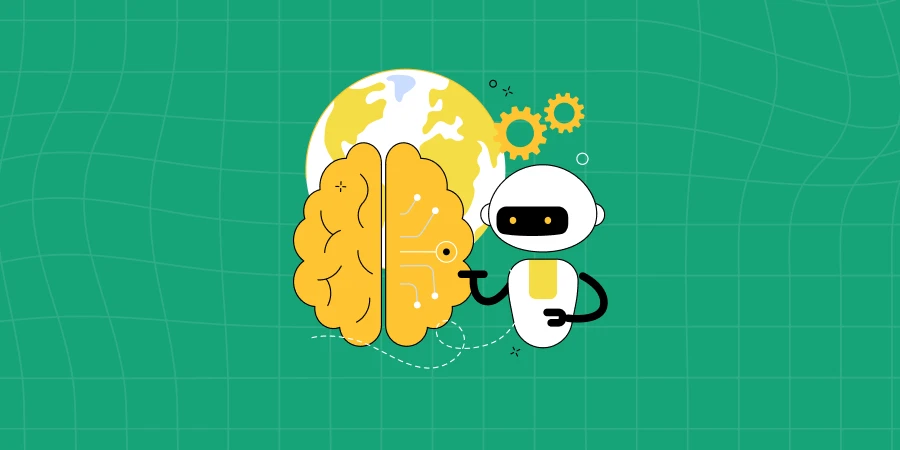
- Supervised learning: Supervised learning involves building models that can make predictions based on labeled data. It is useful for classification and regression tasks.
- Unsupervised learning: Unsupervised learning focuses on finding patterns in unlabeled data. It is useful for tasks such as clustering and dimensionality reduction.
- Natural Language Processing (NLP): NLP is a subfield of machine learning that deals with the interaction between computers and human language. It enables computers to understand, interpret, and generate human language. Making it one of the most essential data analytics skills.
Also Read: Top 7 Must-Know Machine Learning Tools
8. Big Data Technologies
As data continues to grow in volume and complexity, skills in big data technologies become increasingly valuable. Handling large datasets requires knowledge of tools like Hadoop and Spark.
- Data storage: Traditional databases may not be able to handle the volume of big data. Knowledge of data warehousing and distributed storage systems like Hadoop can help you handle large datasets effectively.
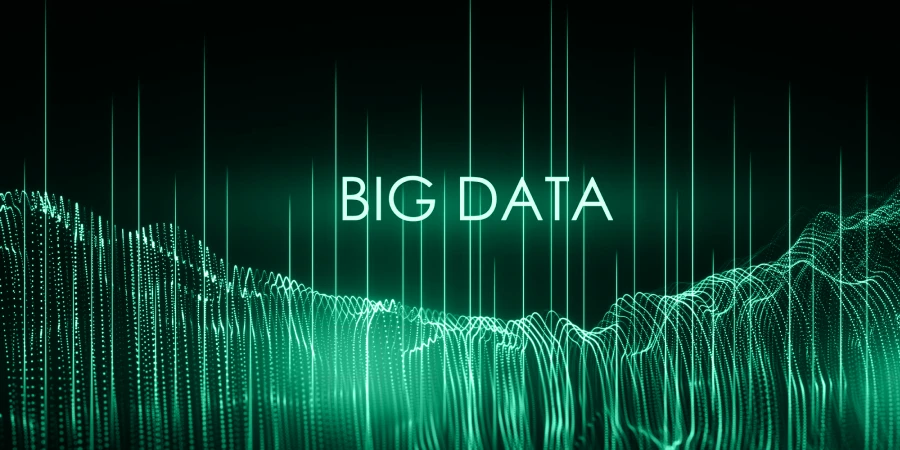
- Data processing: Performing complex computations and analyses on big data requires specialized tools like Spark. Knowledge of data processing techniques in distributed computing environments is essential.
- Real-time analytics: Real-time analytics involves analyzing data as it is generated to make immediate business decisions. It requires tools and technologies that can handle data streams efficiently.
Read: Top 8 Big Data Visualization Tools That You Should Know in 2025
Takeaways…
The role of a data analyst is multifaceted, requiring a combination of technical skills, soft skills, and specialized knowledge. As the field of data analytics continues to evolve, staying updated with the latest skills is essential.
Whether you are starting your journey or looking to advance your career, mastering these data analytics skills can set you on the path to becoming an exceptional data analyst.
Yes, analytics is in high demand as organizations increasingly rely on data-driven insights for decision-making.
While AI enhances data analysis capabilities, it’s unlikely to replace data analysts entirely, as human interpretation and context are crucial.
Not really, ChatGPT is not designed for data analysis; it excels in natural language processing and generating human-like text.
Tableau and SQL serve different purposes; Tableau focuses on visualization, while SQL is for database querying. So the ease depends on your use case.

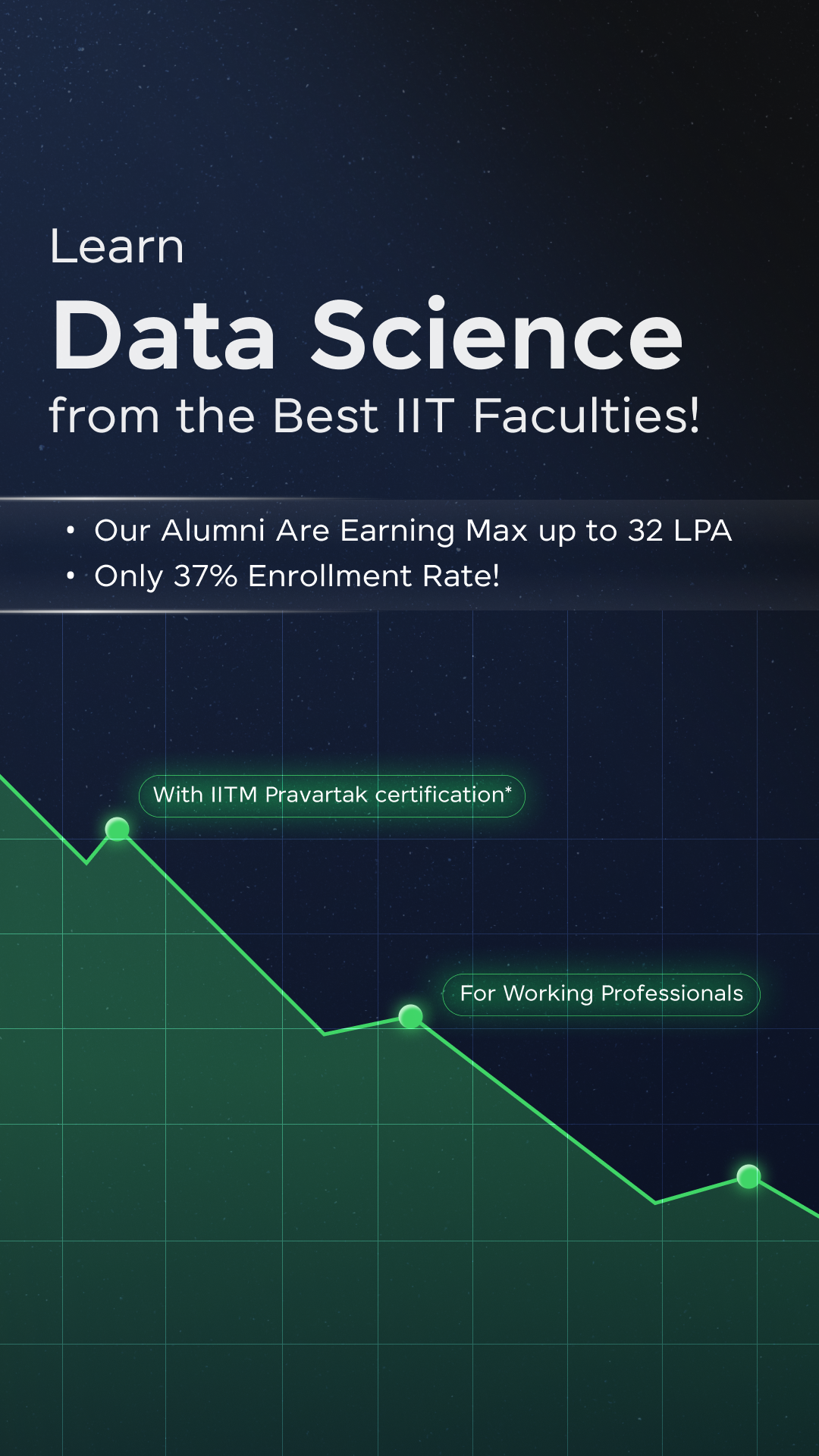



















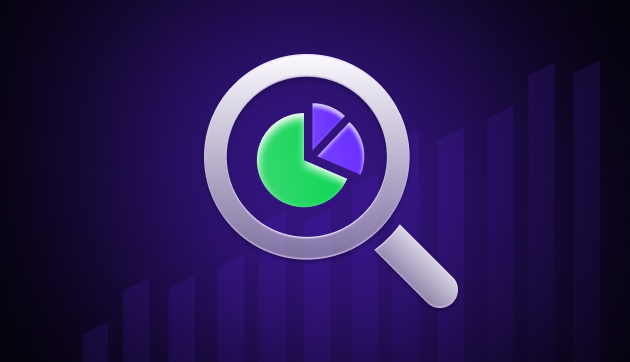
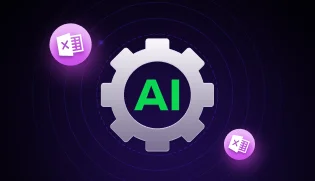
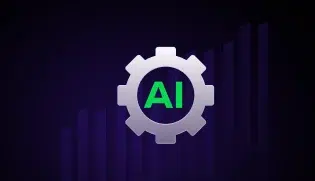

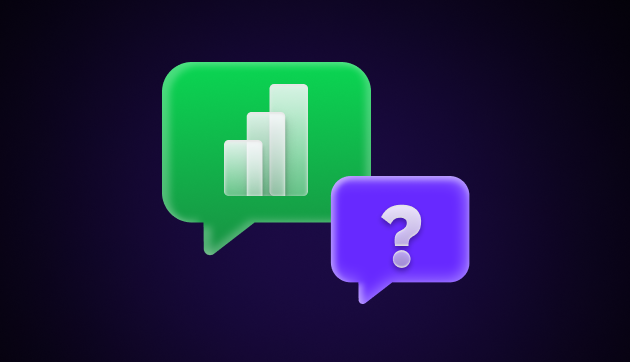





Did you enjoy this article?